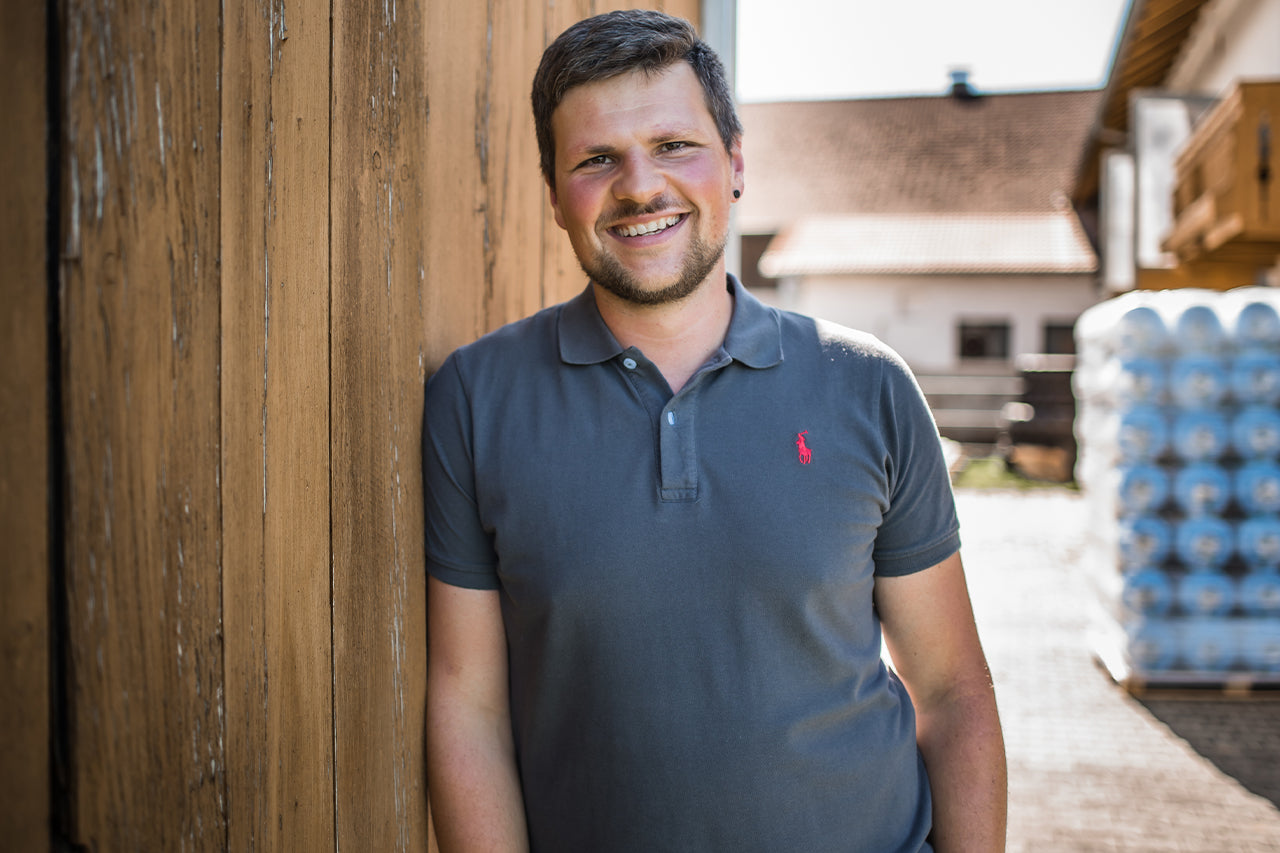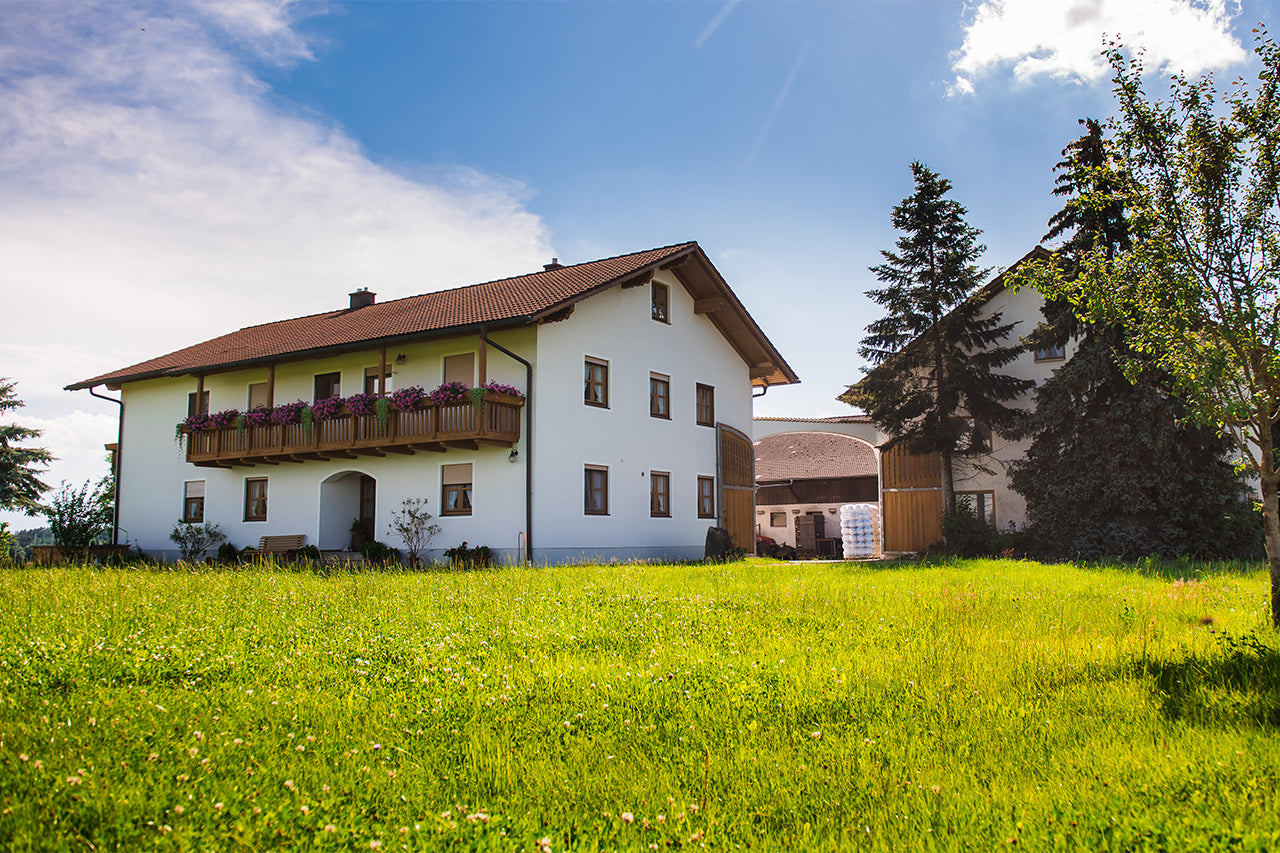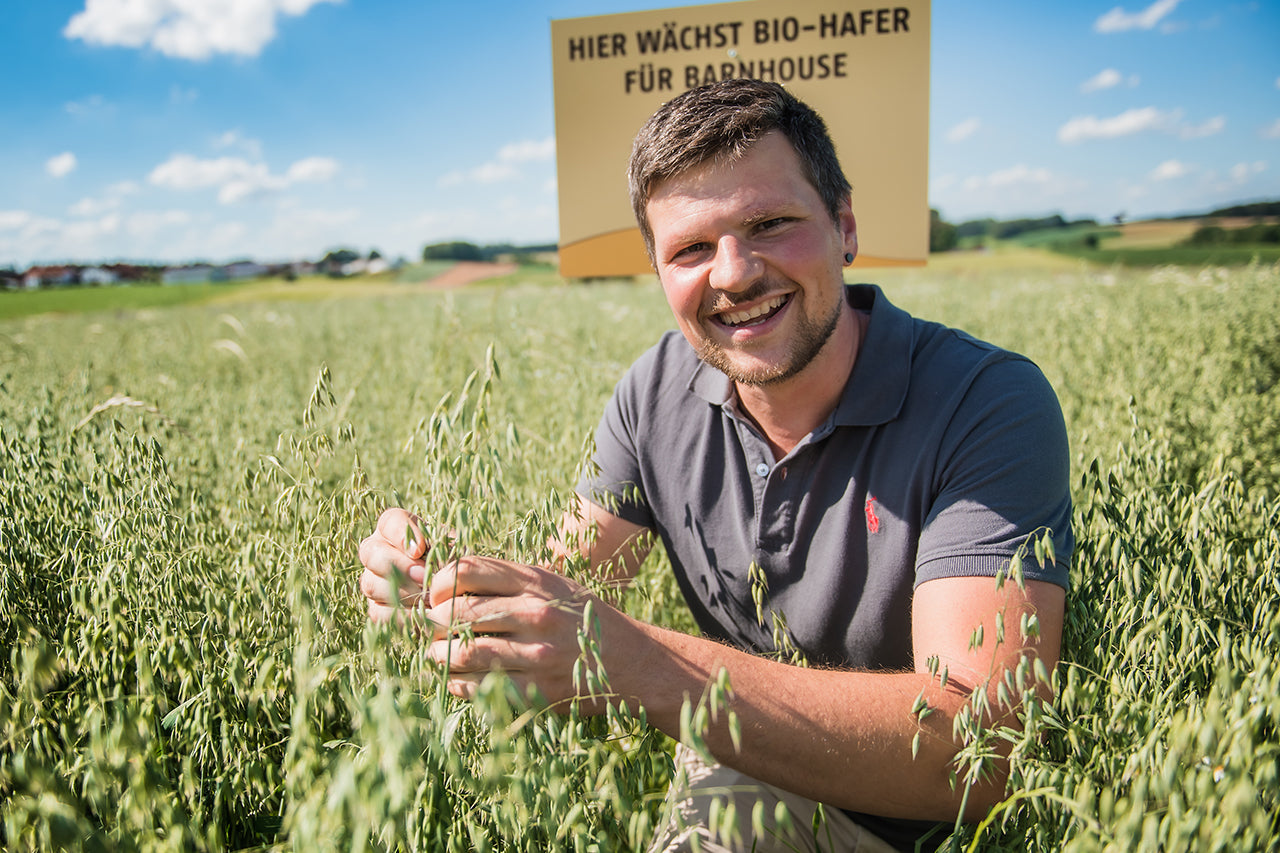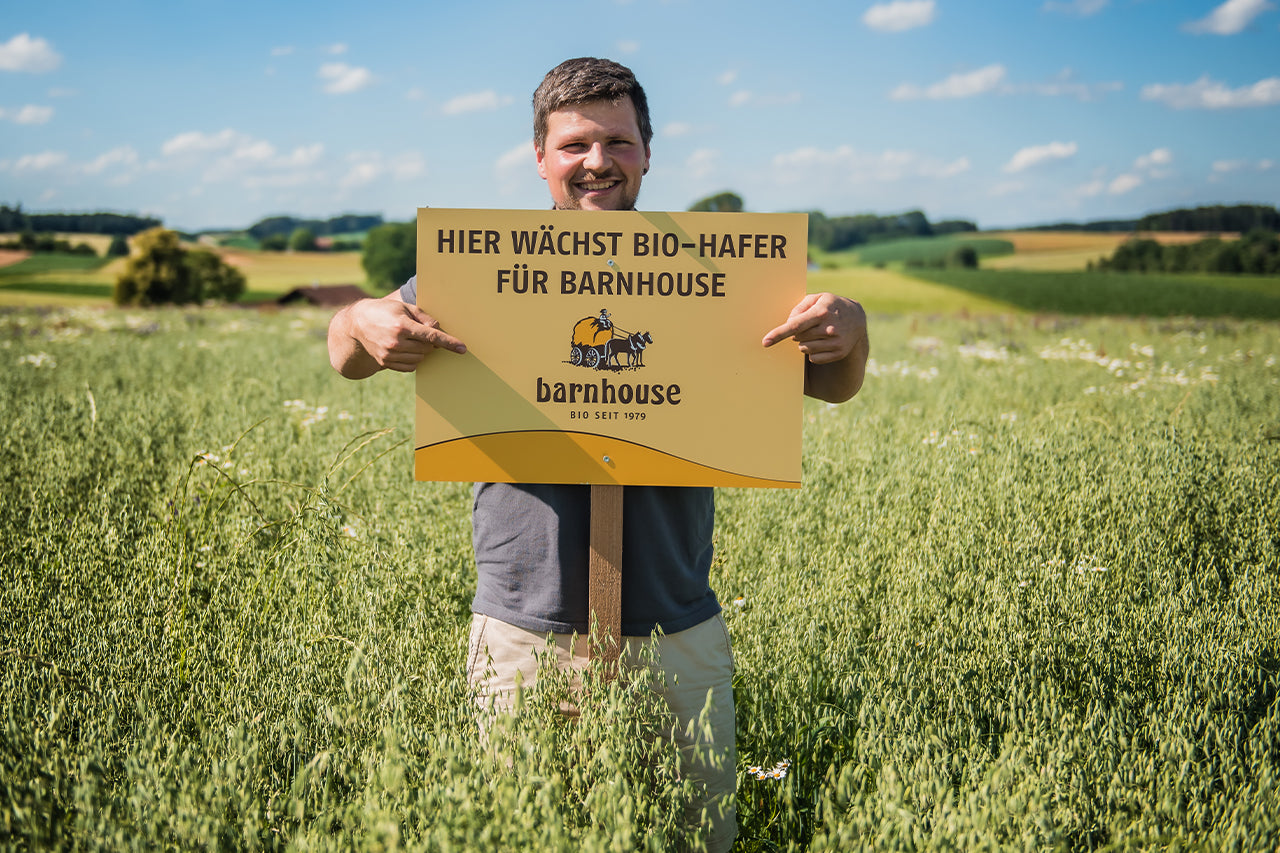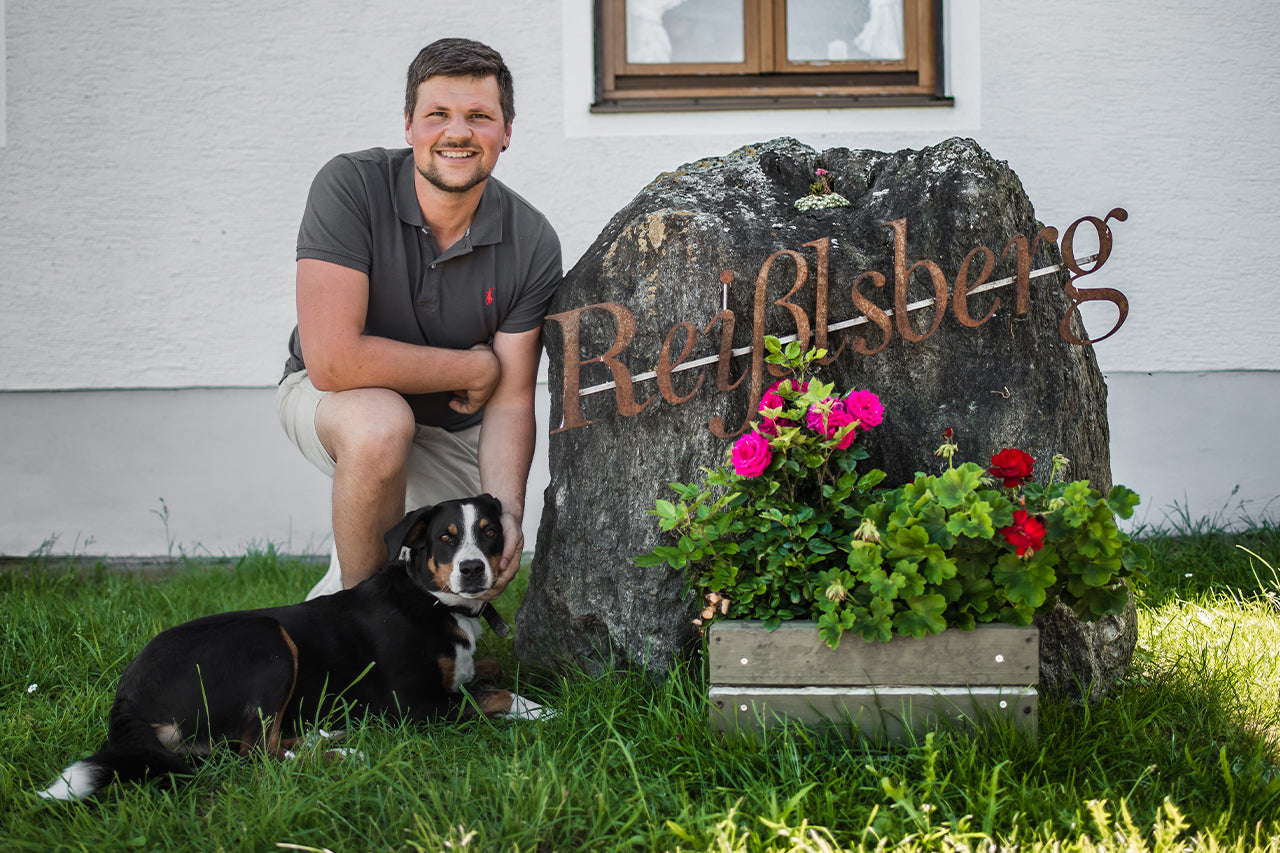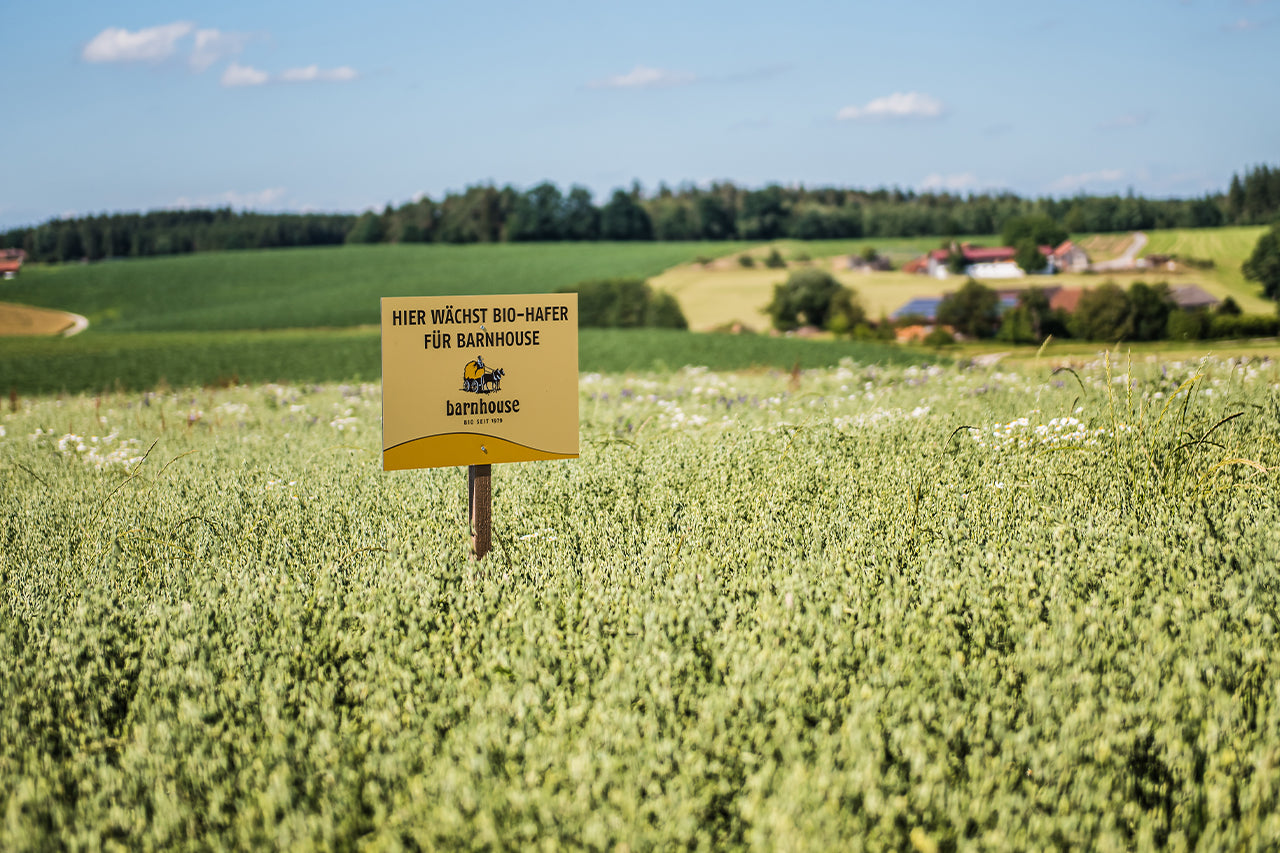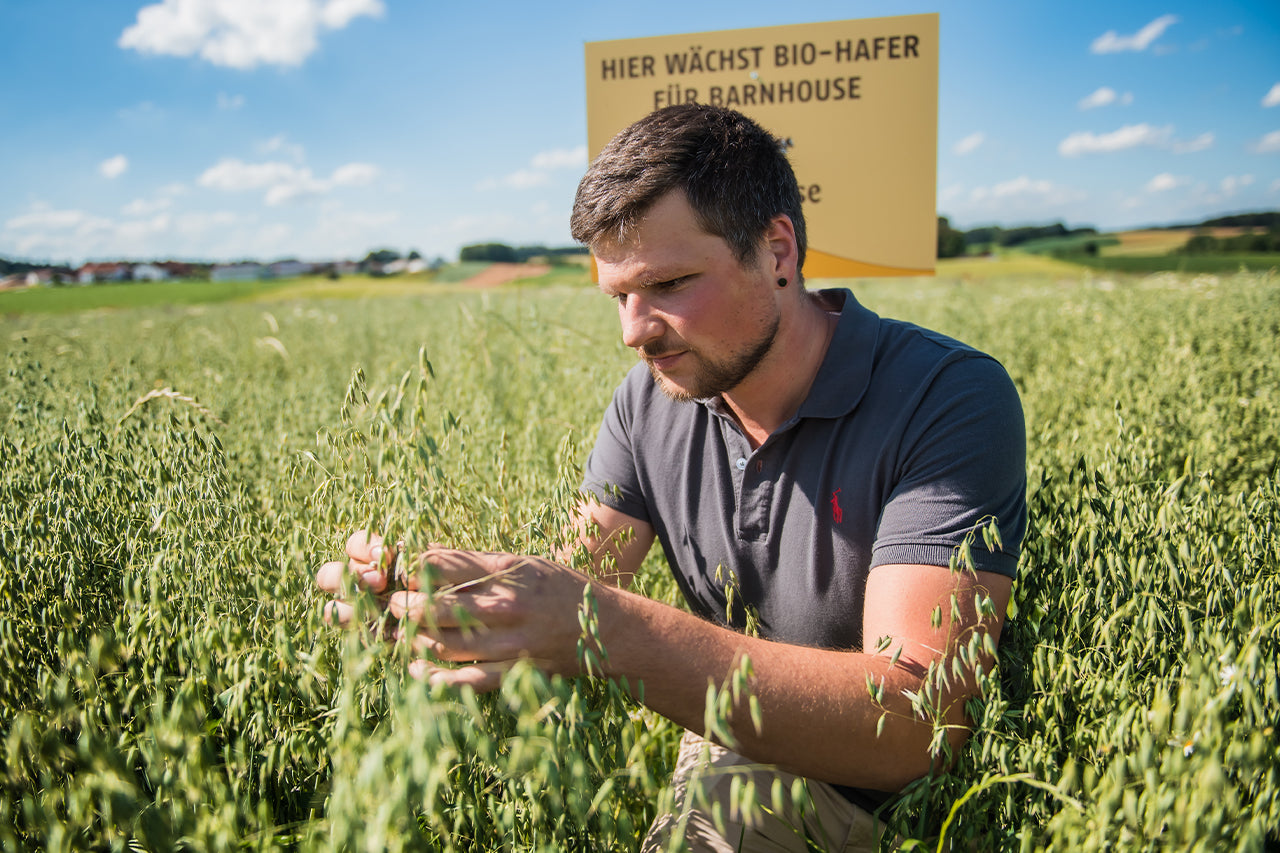"Don't work against nature, but with nature"
The Reischberger Hof has been owned by the Hobmaier family for over 100 years and was completely rebuilt in 1900 after a fire. Son Johannes takes care of the field cultivation and organic certification in the family business and has also established contact with Barnhouse some time ago.
A lot is grown on the 75-hectare farm. In addition to bread wheat, triticale, maize, alfalfa and clover grass, you can also occasionally find lupins and field beans. In addition, the family has 60 dairy cows with their own offspring, 20 hens, 5 cats and a dog. So it never gets boring on the farm and there is enough work to do.
That is why the farm is run full-time by Johann and Martina Hobmaier. Son Johannes also works as a SAP key user.
But how did the switch to organic come about?
In 2016 the farm was converted to organic and is a member of the Naturland cultivation association. "I really enjoy working with nature and I can discover and question interesting occurrences every day," reveals Johannes. Above all, the production of good food makes him really proud.
“It is important to me to produce healthy, high-quality food and at the same time to improve the climate. In our area we are the only organic farmers. I'm all the happier when conventional neighbors, who laughed at first when we switched, then come to me and ask how it's possible that there's no difference between their fields and ours. That motivates me even more,” explains the young farmer.
These working methods are used by the Hobmaier family
“The soil and soil life are very important to me. Hardly a day goes by where I don't go out into the field with a spade and look at the soil dwellers. For this reason, all arable farming was switched to no-plough farming in 2015. The manure from the cattle is turned into MC compost, which is then taken to the field as fodder for earthworms and microorganisms. What is also important to me is to build up the humus in the soil in order to store CO² in the soil, because that way I can also contribute to climate protection".
Marketing grain regionally
It was very important to Johannes that the cultivated grain was marketed regionally. This saves you long transport routes and you can do a little more to protect the environment. He is all the more pleased to have found a partner in us. Because that way he always knows where his oats are used - and then the crunchy muesli will definitely taste twice as good. 😉


